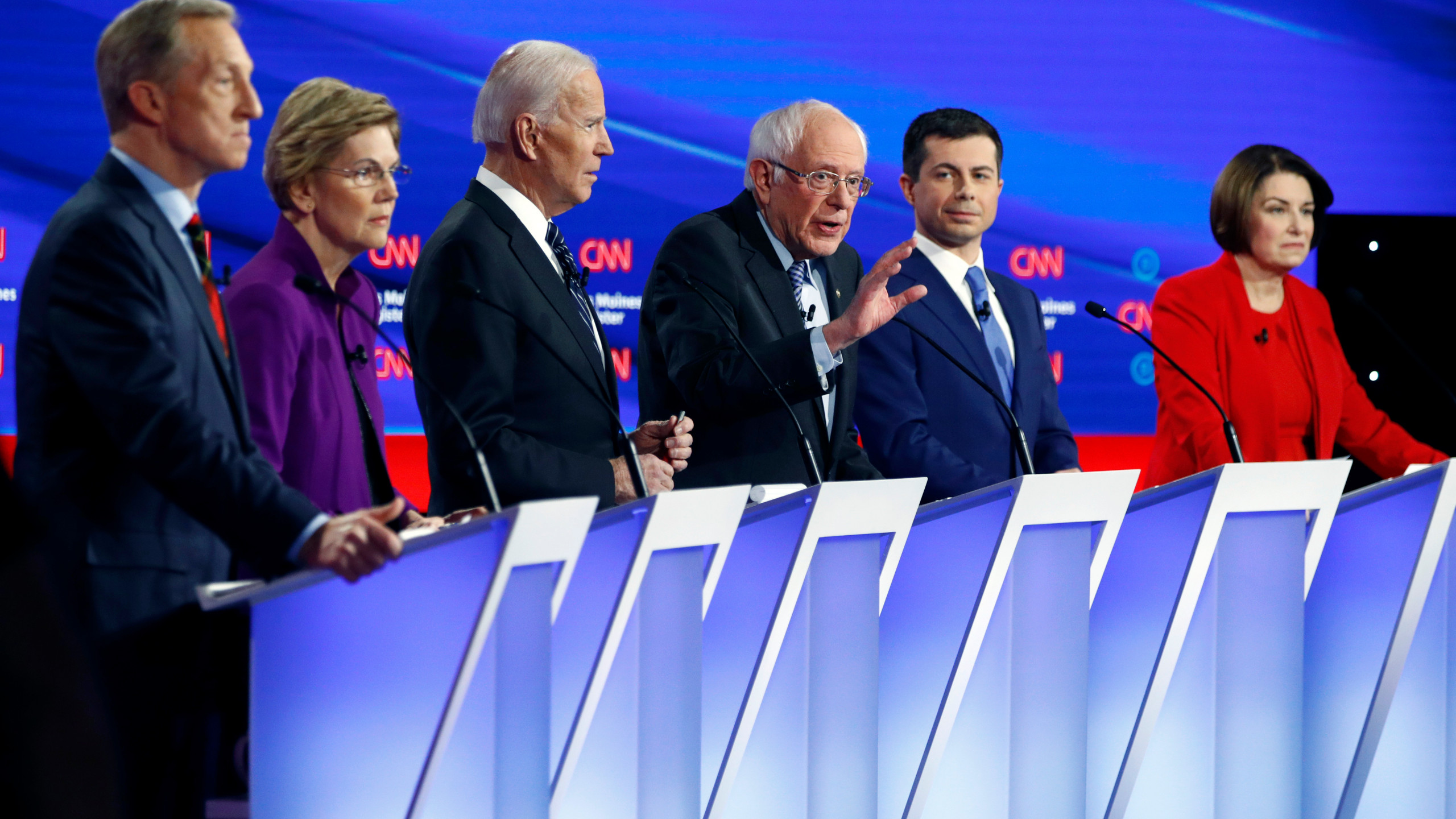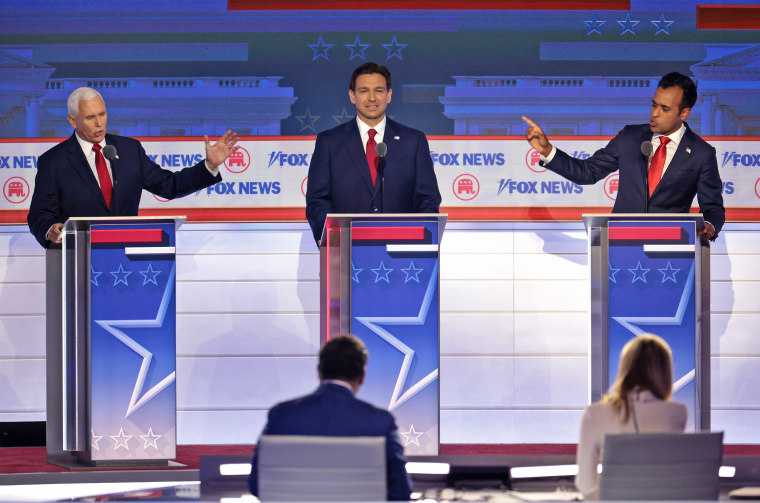Key Issues and Debates

The ABC presidential debate covered a wide range of issues, but three emerged as particularly significant: the economy, healthcare, and climate change. These issues are central to the concerns of many voters and reflect the major challenges facing the nation.
The Economy
The state of the economy is a perennial concern for voters, and this debate was no exception. The candidates presented contrasting viewpoints on the best way to address economic challenges and stimulate growth.
- Candidate A advocated for a more interventionist approach, emphasizing government spending on infrastructure and social programs to create jobs and boost demand. They proposed a significant increase in the minimum wage and a expansion of tax credits for low- and middle-income families. They argued that these measures would stimulate economic growth and reduce income inequality.
- Candidate B favored a more laissez-faire approach, emphasizing tax cuts for businesses and individuals as the primary driver of economic growth. They argued that reducing regulations and lowering taxes would unleash entrepreneurial energy and lead to increased investment and job creation. They also proposed significant cuts to social programs, arguing that these programs are inefficient and stifle economic growth.
Healthcare
Healthcare remains a highly contentious issue in American politics, with significant differences in how the candidates approach it.
- Candidate A supported expanding access to healthcare through a government-run, single-payer system. They argued that this approach would ensure universal coverage, reduce healthcare costs, and improve the quality of care. They proposed increasing taxes to fund the system, but argued that the overall cost savings would outweigh the tax increase.
- Candidate B advocated for a market-based approach to healthcare, emphasizing the role of private insurance and competition. They proposed allowing individuals to purchase health insurance across state lines, expanding the use of health savings accounts, and increasing the use of telemedicine. They argued that these measures would lower costs and improve quality by giving consumers more choices.
Climate Change, Abc presidential debate
The debate also addressed the issue of climate change, which has become increasingly prominent in recent years.
- Candidate A acknowledged the urgency of the climate crisis and proposed a comprehensive plan to address it. This plan included investing heavily in renewable energy sources, setting ambitious targets for reducing greenhouse gas emissions, and promoting energy efficiency. They argued that addressing climate change is not only an environmental imperative but also an economic opportunity, creating jobs and driving innovation.
- Candidate B expressed skepticism about the severity of climate change and questioned the scientific consensus on its causes. They argued that the focus should be on economic growth and that addressing climate change should not come at the expense of jobs and prosperity. They proposed a more gradual approach to reducing emissions, relying on market-based solutions rather than government regulation.
Candidate Performance and Strategies: Abc Presidential Debate

The presidential debate provided a platform for the candidates to showcase their communication styles, present their policy positions, and engage with the audience. This analysis examines the performance of each candidate, focusing on their communication strategies, strengths, weaknesses, and the impact of specific moments on their overall perception.
Communication Styles and Strategies
The candidates employed distinct communication styles and strategies to convey their messages.
- Candidate A, known for their direct and assertive approach, frequently used strong language and concise statements to emphasize their points. They adopted a conversational tone, directly addressing the audience and engaging in eye contact. This style resonated with voters seeking a decisive leader.
- Candidate B, on the other hand, favored a more nuanced and diplomatic approach, often using qualifiers and hedging their statements. Their communication style was characterized by a focus on building consensus and finding common ground. This approach appealed to voters who valued compromise and collaborative leadership.
Strengths and Weaknesses in Articulating Positions
Each candidate exhibited strengths and weaknesses in articulating their positions on key issues.
- Candidate A excelled at simplifying complex issues, making them relatable to a broader audience. They were particularly effective in using personal anecdotes and relatable examples to illustrate their policy positions. However, their focus on brevity sometimes led to oversimplification, potentially overlooking nuances and complexities.
- Candidate B demonstrated a strong grasp of policy details and demonstrated a willingness to engage in in-depth discussions on complex issues. However, their detailed explanations could sometimes be challenging for viewers to follow, potentially losing the attention of those seeking concise answers.
Impact of Specific Moments and Exchanges
Certain moments and exchanges during the debate significantly impacted the overall perception of each candidate.
- Candidate A’s forceful response to a question regarding their stance on immigration resonated with their base, solidifying their image as a strong and decisive leader. However, this approach alienated some moderate voters who viewed it as aggressive and divisive.
- Candidate B’s calm and measured response to a contentious question regarding healthcare policy demonstrated their ability to remain composed under pressure. This exchange further reinforced their image as a thoughtful and deliberative leader, appealing to voters seeking a steady hand at the helm.
The ABC presidential debate is a crucial moment in the electoral process, a platform where candidates engage in a battle of ideas and policies. The question of “who’s winning in the presidential debate” whos winning in the presidential debate is often debated by pundits and viewers alike, with each side highlighting their chosen candidate’s strengths and the opponent’s perceived weaknesses.
Ultimately, the ABC presidential debate provides a glimpse into the candidates’ vision for the nation, their ability to articulate their plans, and their capacity to engage in respectful discourse.
The ABC presidential debate was a whirlwind of promises and pronouncements, a spectacle of political maneuvering. Yet, even as the candidates clashed on policy, the world outside continued its own rhythm. A sudden weather event, perhaps, could bring everything to a halt, like a ground stop at NYC airports , grounding planes and forcing a pause in the flow of travel.
In such moments, we are reminded that even the grandest of debates can be overshadowed by the forces of nature, and that the pursuit of progress must always be tempered by a respect for the unexpected.
